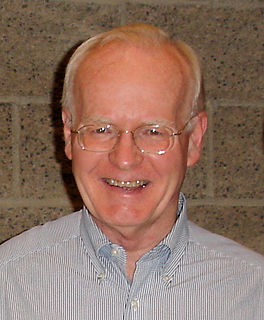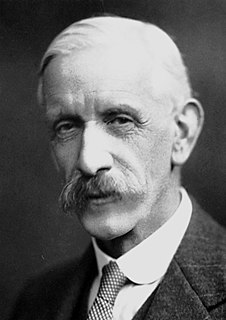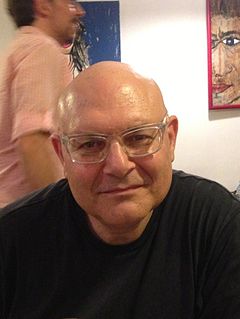A Quote by David Ray Griffin
Twentieth-century developments in science support a new animism. Developments in physics have led to a world of energetic events which seem to be self-moving and to behave in unpredictable ways. And recent studies in biology seem to demonstrate that bacteria and macromolecules have elemental forms of perception, memory, choice, and self-motion.
Related Quotes
It has been said that the three great develpments in twentieth century science are relativity, quantum mechanics, and chaos. That strikes me the same as saying that the three great developments in twentith century engineering are the airplane, the computer, and the pop-top aluminum can. Chaos and fractals are not even twentieth century ideas: chaos was first observed by Poincare and fractals were familiar to Cantor a century ago, although neither man had the computer at his disposal to show the rest of the world the beauty he was seeing.
It is an old saying, abundantly justified, that where sciences meet there growth occurs. It is true moreover to say that in scientific borderlands not only are facts gathered that [are] often new in kind, but it is in these regions that wholly new concepts arise. It is my own faith that just as the older biology from its faithful studies of external forms provided a new concept in the doctrine of evolution, so the new biology is yet fated to furnish entirely new fundamental concepts of science, at which physics and chemistry when concerned with the non-living alone could never arrive.
We live today in a world where most of the really important developments in everything from math and physics and astronomy to public policy and psychology and classical music are so extremely abstract and technically complex and context-dependent that it's next to impossible for the ordinary citizen to feel that they (the developments) have much relevance to her actual life.
In this world which is losing faith in so called representative democracy, there are new developments in participatory democracy. These are very interesting developments, reflecting the revitalization of community power with a more and more active presence of minorities in political life, including the presence of women who are of course by no means a minority.
General editors' preface The growth of translation studies as a separate discipline is a success story of the 1980s. The subject has developed in many parts of the world and is clearly destined to continue developing well into the twenty-first century. Translation studies brings together work in a wide variety of fields, including linguistics, literary study, history, anthropology, psychology, and economics. This series of books will reflect the breadth of work in translation studies and will enable readers to share in the exciting new developments that are taking place at the present time.
Self-knowledge is not the knowledge of a dead self, self-knowledge is the knowledge of the process of the self. It is an alive phenomenon. The self is not a thing, it is an event, it is a process. Never think in terms of things, the self is not there inside you just like a thing waiting in your room. The self is a process: changing, moving, arriving at new altitudes, moving into new planes, going deeper into new depths. Each moment much work is going on and the only way to encounter this self is to encounter it in relationship.

































